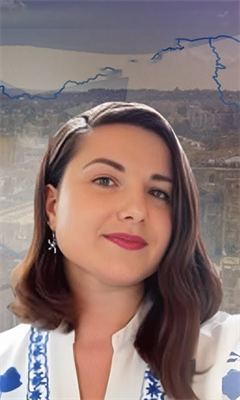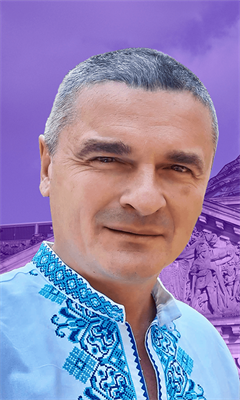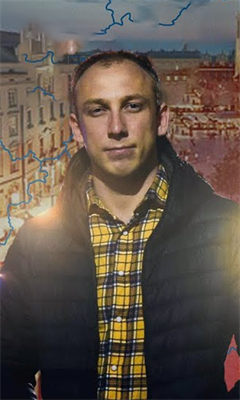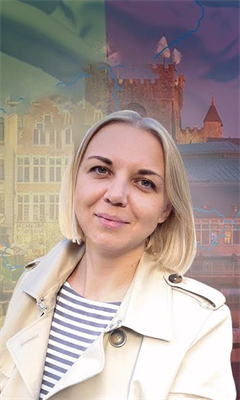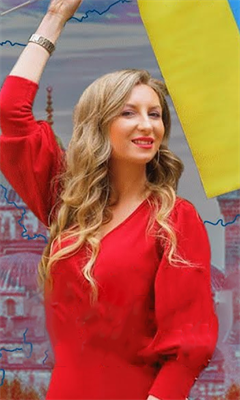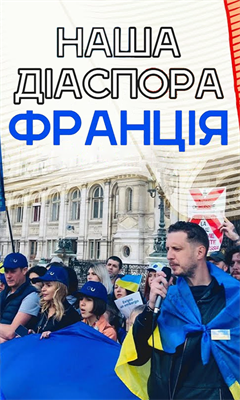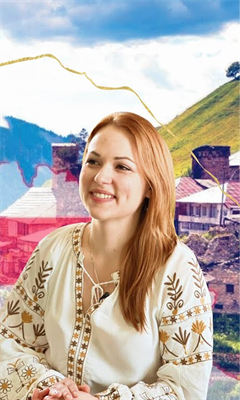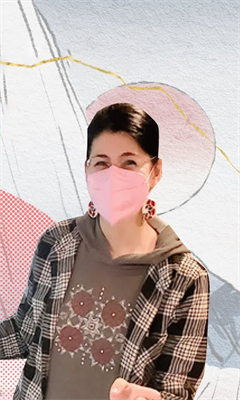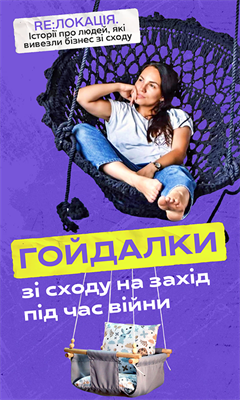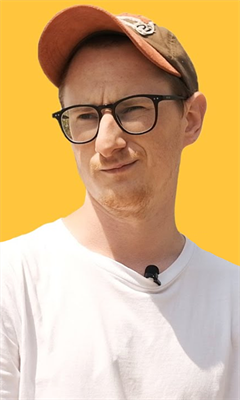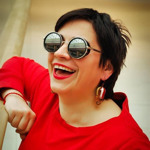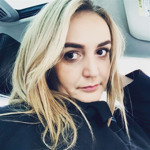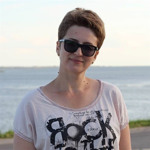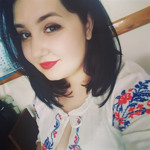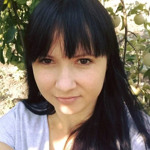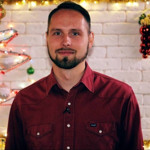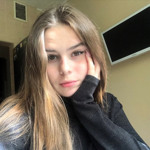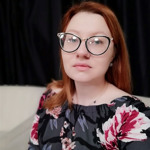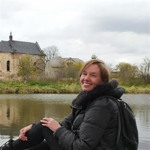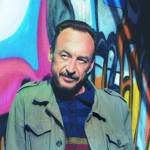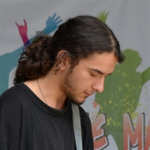Half a Year Ago, We Survived a Terrorist Attack at the Kramatorsk Railway Station. We Are Struggling
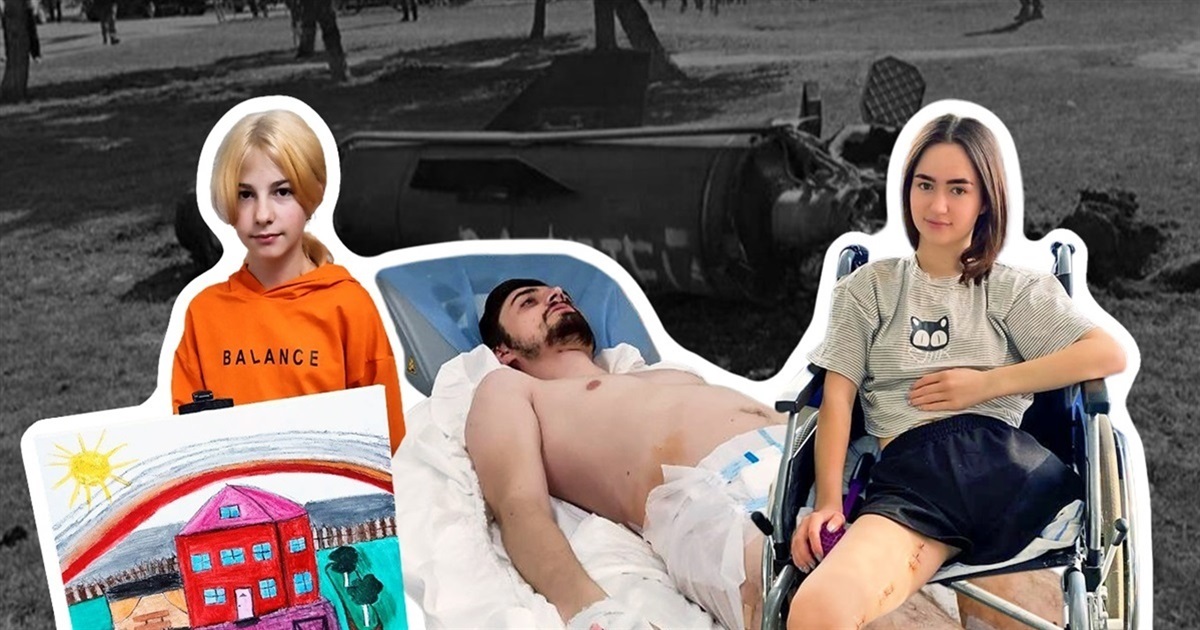
Belts used instead of tourniquets saved my legs. Now I'm moving slowly on my own. I want to learn to drive a car
Vladyslav Kopychko, 27 y.o., Kramatorsk
— With the start of the full-scale invasion, I went to the draft board but they told me there were no openings. A week passed, no summons was brought, so I joined the local territorial defence unit. There I learned how to use a tourniquet and how to behave during shelling. I would soon need these skills that might save my life.
We were planning to leave Kramatorsk for Kyiv on 07 April, but the rail repair was still in progress so the evacuation train was postponed to the next day. We arrived at the railway station in the morning. We could hardly breathe in the station building because it was crowded. I left my mother with our luggage inside and went outdoors. I was sitting on a bench on the left side of the railway station when cluster missiles hit the area.
I heard a whistling sound followed by an explosion. I quickly threw myself to the ground and in a moment clusters rained down. I did not see what exactly was going on at that moment because I was lying on the ground with my face down, covering my ears and yelling to avoid a shell shock.
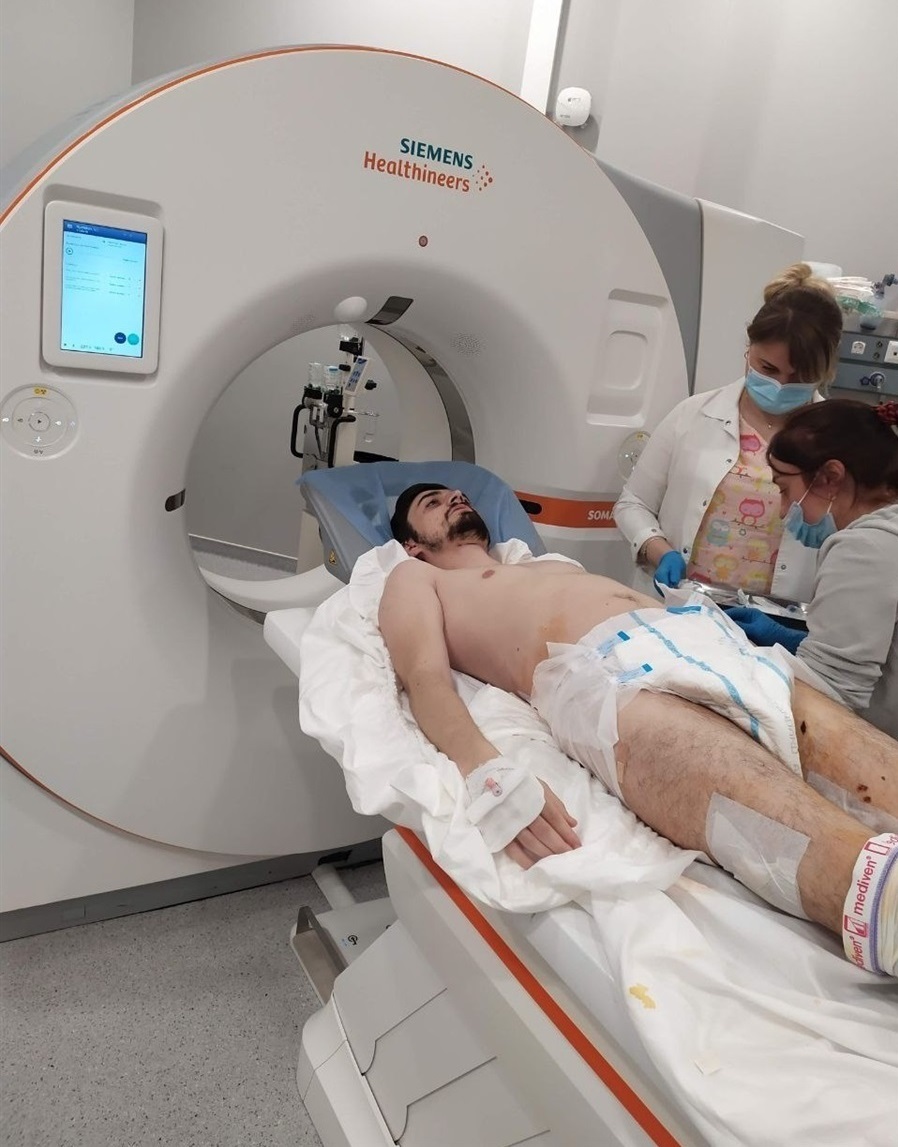
A man's corpse flew at me. He was headless, his guts fell on my back, one leg and one arm were missing, and the other arm was almost a bone. When I moved him aside, I saw that I was bleeding myself. I started crawling towards the station building thinking of possible further shelling.
My mother ran up in a few minutes. She was crying and I tried to calm her down. I took off my belt, explained to my mother how to make a tourniquet and showed where to put it on my left leg. A man was running by, my mother asked him to give another belt and she put a tourniquet around my right leg. In 10 minutes, I found myself in a "brick-bread" utility car (translator’s note: a Soviet model of a UAZ utility car, called so because its shape reminds a brick-bread) of the territorial defence people. I asked them to carefully put me on the stretcher and on my side because there were also fragments in my back. Apart from me, a man without both legs was lying in the car, and at the last moment another man jumped in with a child in his arms, both slightly wounded.
We were taken to the city hospital No. 3. I remember it was full of people. They put me in the corridor and cut all my clothes. Then I was taken to the operating room: they extracted the largest fragment that penetrated the pelvic bone through the buttock. I was there until three in the morning. Then some more ambulances arrived to evacuate severely wounded patients to Dnipro. I was transported to Pavlohrad where I stayed about a day. During this time, my mother managed to meet a volunteer who contacted the Dobrobut clinic in Kyiv and called their ambulance. That's how I ended up in the capital city. I was immediately sent for a CT scan. Within almost a month of my stay at Dobrobut, I had 5 or 6 surgeries, I don't remember exactly. The clinic covered all the expenses; we did not pay a kopeck.
When I was staying in the clinic, I took a lot of efforts to stand up. I stretched my legs, tried to bend the knees. The sustained injuries (a multifragmentary fracture of the left iliac bone with multiple fragments and the presence of foreign bodies in the back, pelvis, both limbs, lacerations due to a bruise) made it very painful to do anything. Doctors often injected painkillers. After discharge from the hospital, I moved around in a wheelchair and a walker for a long time, but I dreamed of walking on my own feet. I also visited a rehabilitator: my classes consisted of ultraviolet irradiation and acupuncture reflexology sessions, bathing my legs in a jacuzzi.
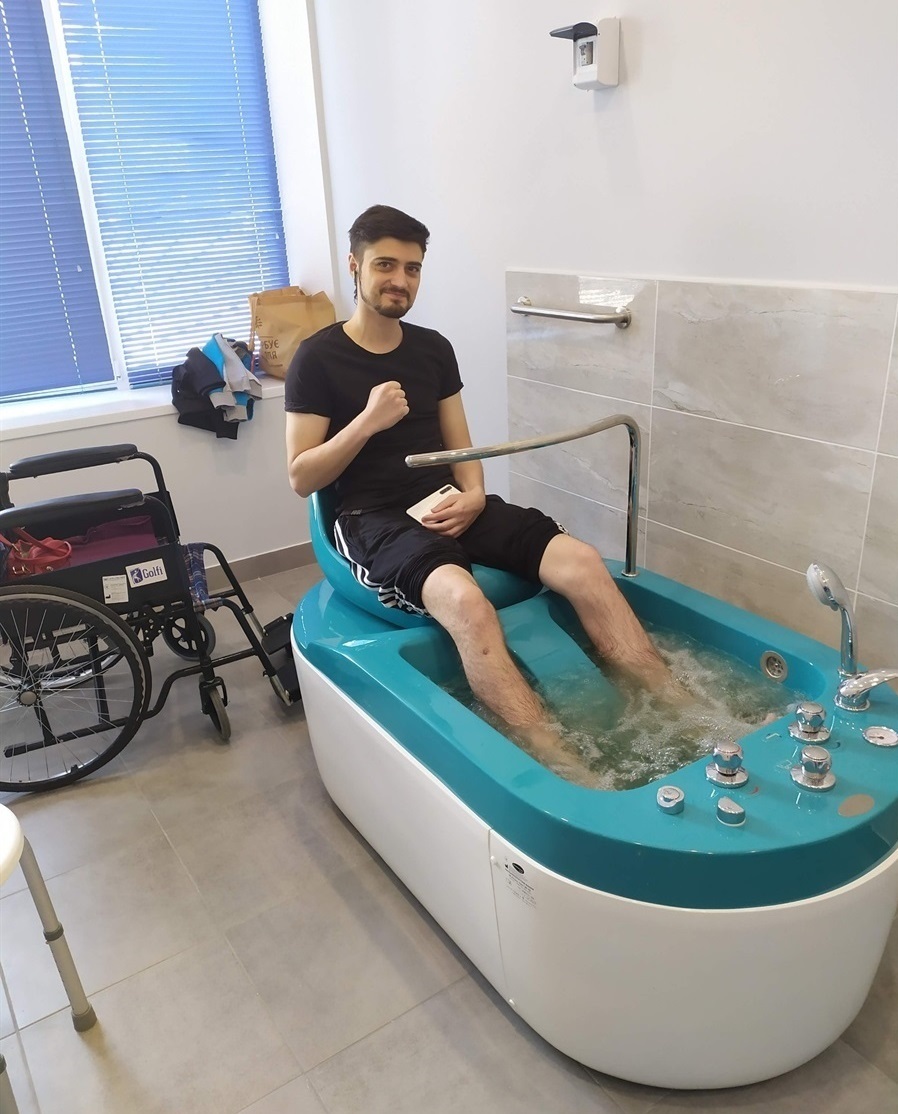
Recently I have received the second degree of disability. My mother was afraid that my calmness would later be transformed into aggression. However, this did not happen because I directed all my aggression to the fight against vatniks on social media.
I still have a surgery ahead; many fragments remain in the body: 17 in my legs and three in my back. I dream of learning to drive a car. I want to get a driver's license and work as a taxi driver.
I wish everyone endurance and faith! If we all stick together, we will definitely win!
The Knee Healed Incorrectly. Fragments in the Heels Sting Unbearably. We Dream of Treatment and Rehabilitation Abroad
Kateryna Iorhu, 13 y. o., Oleksiievo-Druzhkivka
— The girl's aunt Olha Lialko told about that day at the Kramatorsk railway station and the subsequent treatment and life of Katia.
I, my twin sister Maryna and her daughters Yulia and Katia were waiting for the evacuation train that day. We had five bags and watched them in turns. First, I went to the toilet with my younger niece Yulia and we had tea. As we returned, my sister and Katia did the same. Ten minutes later, two explosions were heard.
Katia recollects that a man covered her with his body during the explosions. Her mother Maryna was lying next to her, she tugged her but mother did not move. Katia thought she had fainted, but my sister Maryna was killed instantly.
Firstly, the niece was taken to the Kramatorsk hospital, and the same night, after emergency care, she was transported to Dnipro. The next day, I, grandfather and younger Yulia (she is 9 y.o.) followed her.
Katia had severe missile wounds, a mine-explosive injury, her legs were full of fragments. When she regained consciousness after the surgery, she immediately asked: "Where's mom?" We did not tell her, the doctors discouraged us to do so. Then Katia asked to bring her a phone and opened my social media page where I posted "Rest in peace Maryna". That's how Katia found out that her mother was not alive. Maryna will forever be 38 years old.
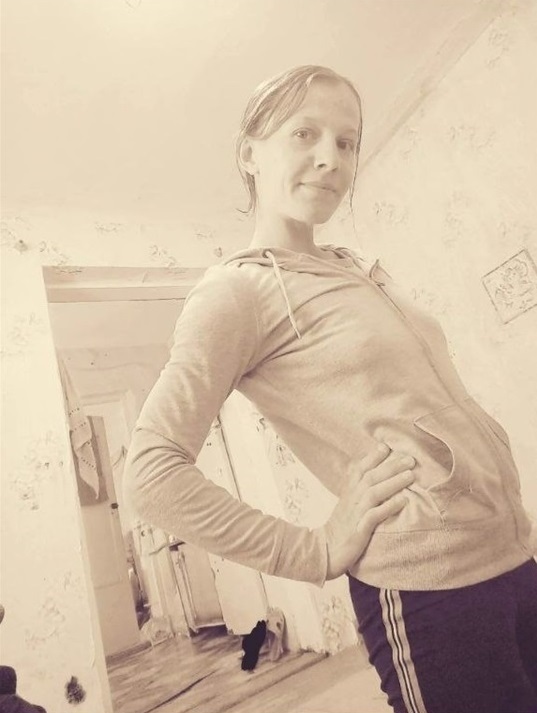 Maryna Lialko
Maryna Lialko
Katia was directed from Dnipro to one of the Lviv hospitals. We wasted time there. That's what the doctor from Lviv Okhmatdyt children's hospital told us when we visited them on our own. He said that Katia's knee healed incorrectly. Because of this, she does not move well, one shoulder is lower than the other. She cannot have long walks; Katia sits almost all the time.
We wanted to go abroad but we were not allowed to go because at that time I did not have guardianship papers. At that time, many affected children were taken to Germany. Moreover, Katia’s medical papers had a statement "treatment abroad is recommended." I had to get the papers quickly. I obtained a temporary guardianship for Katia and Yulia back in May, when we stayed in Lviv, but time passed, and she was no longer invited abroad. Later she found herself, literally, on the street – we were discharged from the hospital to nowhere.
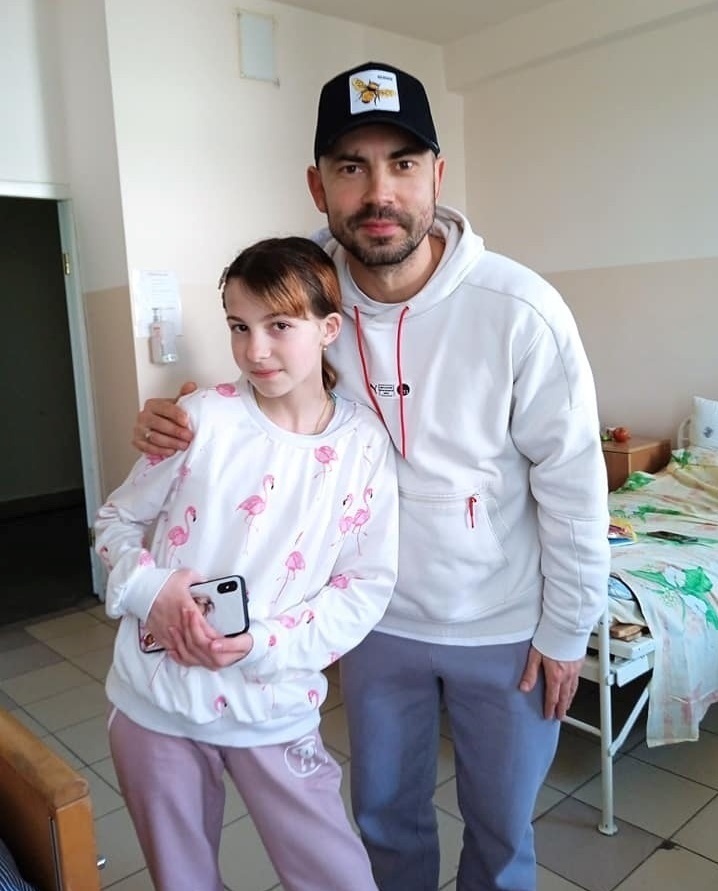 Katia in the Lviv hospital with the famous actor and presenter Andrii Bedniakov
Katia in the Lviv hospital with the famous actor and presenter Andrii Bedniakov
I managed to get a specialization status upon discharge from the hospital. This paper allows you to go to another hospital and receive rehabilitation. Thanks to the charity fund and the help of good people, we moved to Kyiv. They rented us a two-room apartment for several months, and Katia was admitted to Okhmatdyt.
Here, they initially wanted to extract the fragments with a magnet but then this method was rejected as it may do harm to her health. Of course, I would like my niece to have treatment and rehabilitation, for example, in Poland or Germany. Somewhere further is not considered because she cannot have a long journey.
Katia does not take any medications now. I only give her vitamins because her hair has started to fall out. And I feed her intensively because Katia, being 155 centimetres high, weighs only 32 kilograms.
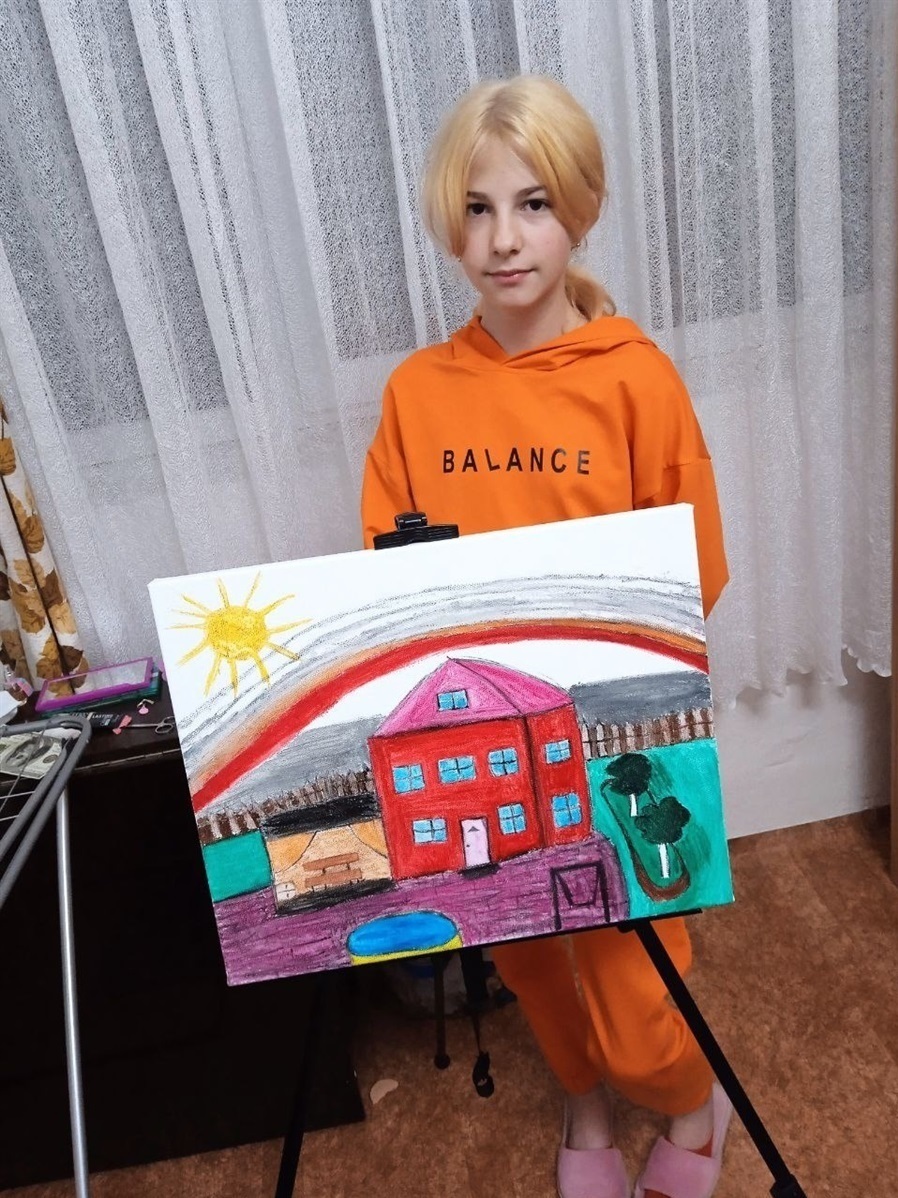 Katia likes drawing
Katia likes drawing
Katya is in the 8th grade. Now she studies remotely at her school No. 14, which is the only one in the village of Oleksiievo-Druzhkivka. The niece hardly goes out into the yard, it is difficult for her to walk and she gets tired quickly. Fragments in the heels, which sting unbearably, prevent her from walking freely. Katia likes drawing but she cannot do this for a long time either because the fragments still remaining in the body disturb her badly.
Recently, my mother, Katia’s and Yulia's grandmother, has come to visit us. Starting from this month, we are renting an apartment at our own expense. It is expensive to live in the capital city as food, travel and visiting doctors cost a sight of money. But for now, we are staying in Kyiv because it is dangerous to live at home now.
I Am Learning to Walk with a Training Prosthesis. After the Tragedy, We, in the Family, Started to Say Soft Words to Each Other and to Appreciate Every Moment of Life
Anastasiia Shestopal, 19 y. o., Druzhkivka
— I was at the station square that day. I was sitting on a bench and waiting for the driver with whom I was supposed to travel to Dnipro. At first, he made an appointment at another location, but as I didn’t know Kramatorsk well, we agreed on a place near the railway station.
That day remains fresh in memory. I remember myself lying in blood. In my mind, I said a prayer to be saved, to survive, to avoid a serious injury. I wanted to believe this would be so. And which is more I wanted to survive for the sake of my loved ones.
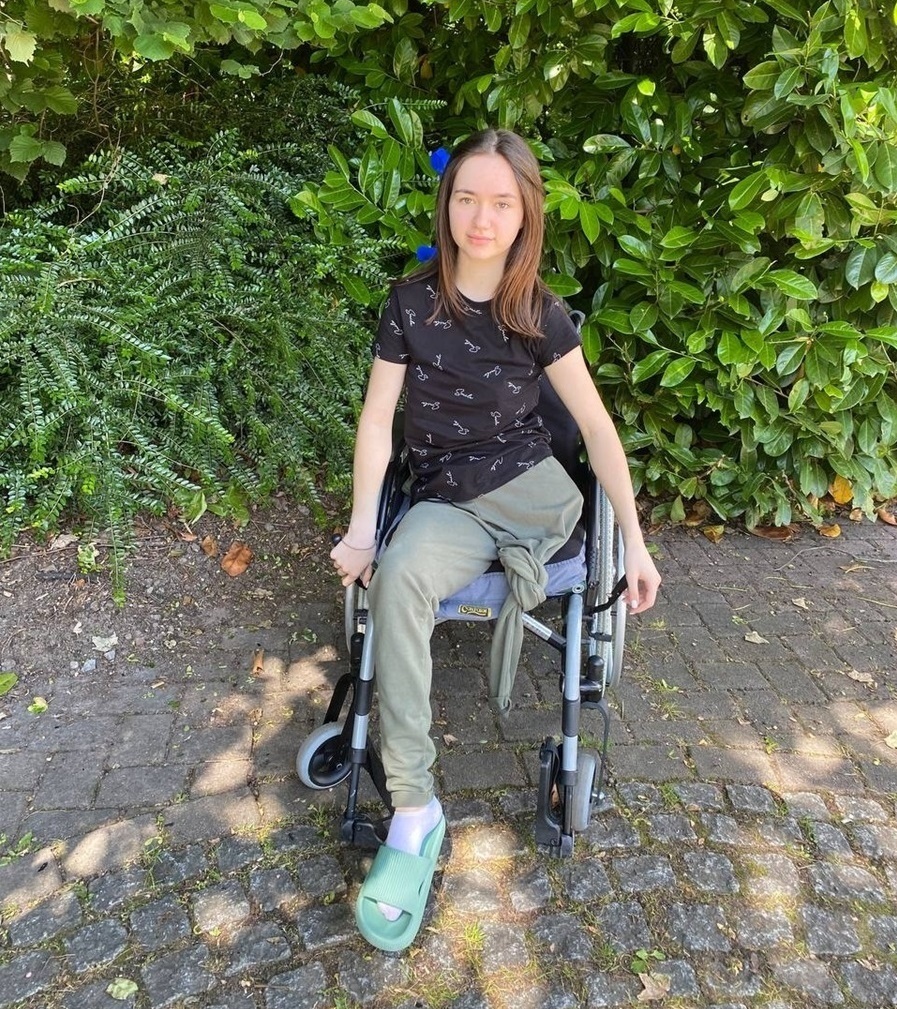
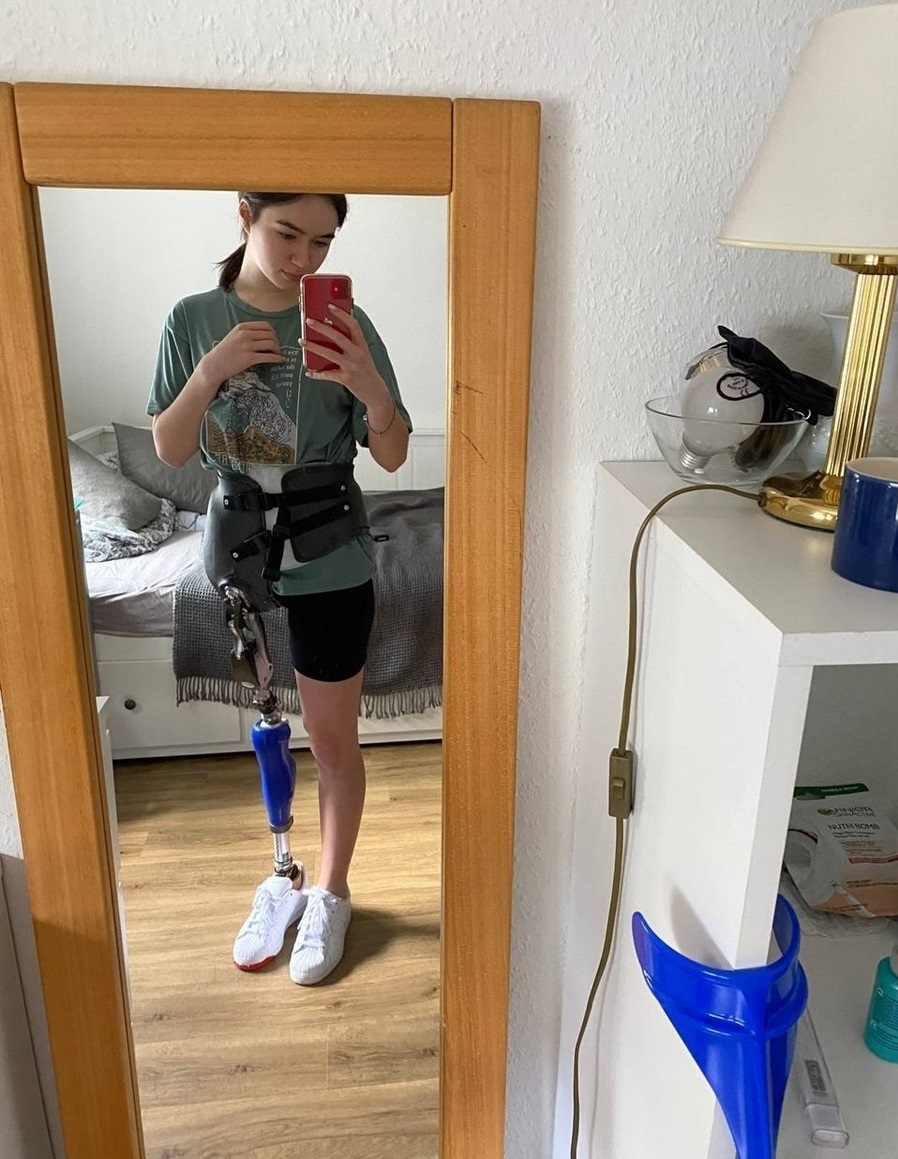
I was lying on the ground feeling severe pain in my left leg. Panic all around: people were screaming, running. I wanted to run away from there but I couldn't. You seem to understand what is happening but not completely. You think a little more and this nightmare will be over. However, minutes pass as if they were stretched into an eternity, and you are still lying in a pool of your own blood.
I was reluctant to believe until the very last moment that my injury was serious. When I regained consciousness after the first surgery in the Kramatorsk hospital, I thought it was the first and the last one, the doctors gave me necessary care, everything will be fine and no more surgery will be needed.
Then they said that my condition was serious, so they would transport me to Dnipro. I begged all the doctors to save my leg. The second surgery was at the Mechnikov Hospital, but the miracle did not happen and during the third surgery the leg was amputated. In total, I had six surgeries in Ukraine, and the seventh in Germany. I went there early May at the invitation of a local family from the city of Essen.
I was discharged from the hospital early June, the insurance policy covered my treatment at a medical institution. Now my mother and I are renting an apartment with the help of good people who care about the problems of Ukrainians. I visit a physiotherapist, attend private Pilates classes, try to walk with a training prosthesis. It turned out that the prosthesis was made at the municipal expense. I learned about this from the mayor of Essen: he invited me to a personal meeting. I don’t know yet when I can get a permanent prosthesis.
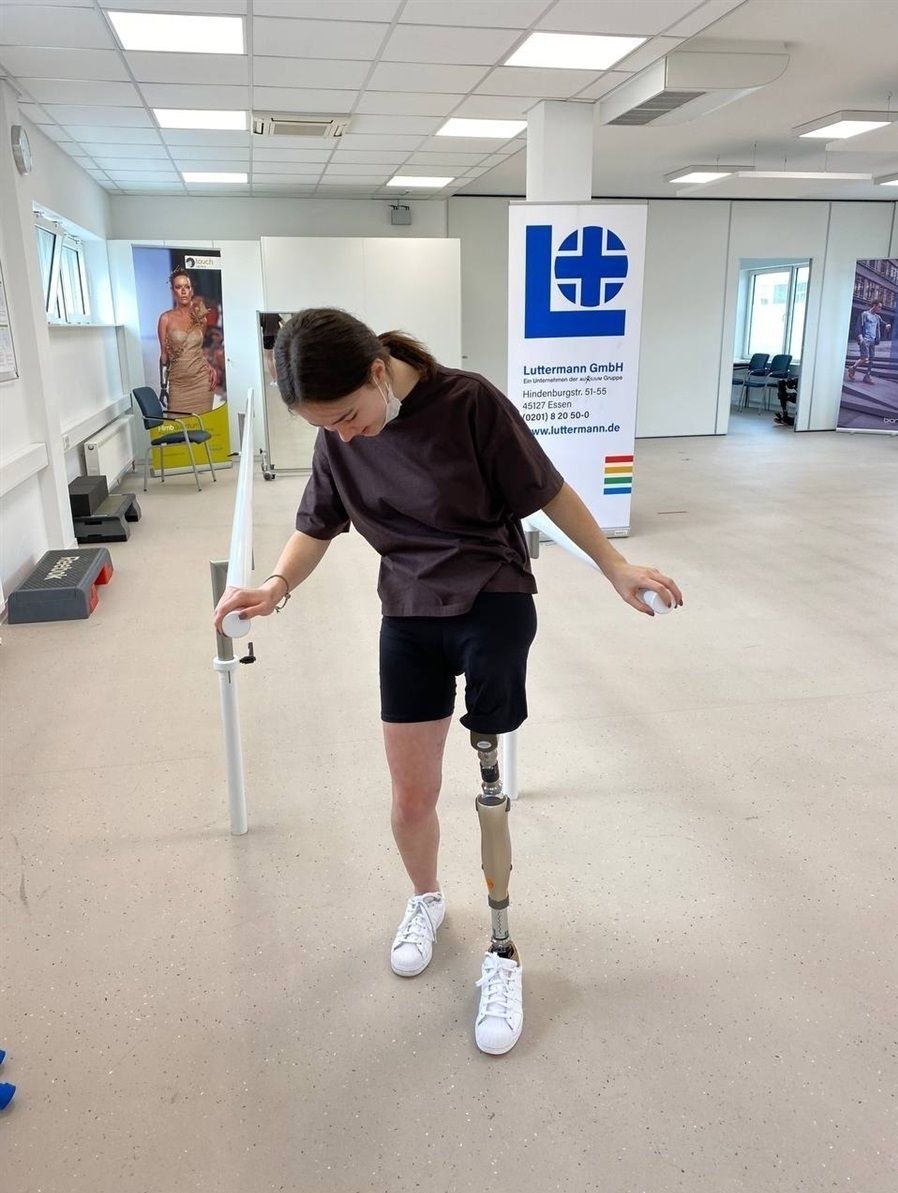
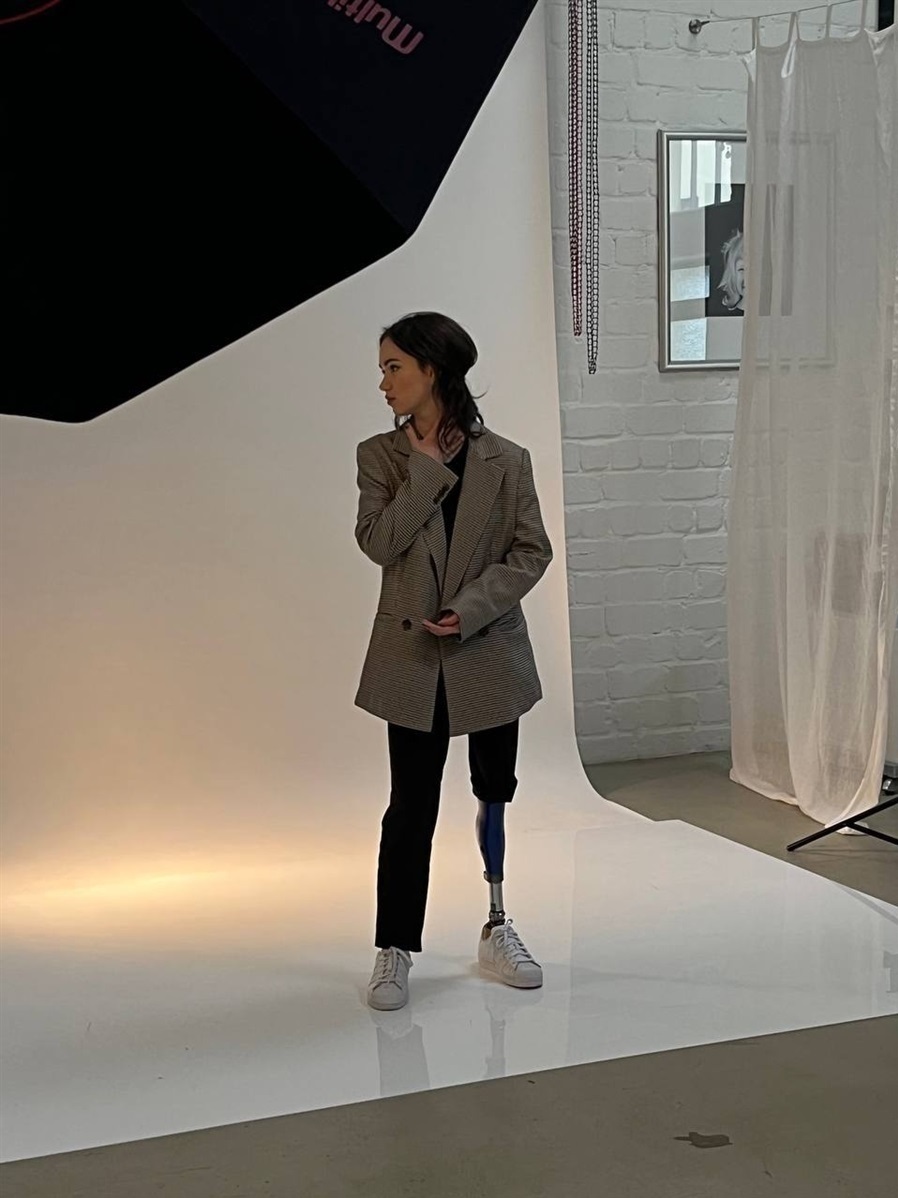
I am planning to return to Druzhkivka. This is my Motherland. My father, sister, nieces, relatives and friends are waiting for me there. I desperately want to go back but I still do not know when that will happen.
After that tragic day, many aspects were redefined in our family. For example, the attitude to each other: we started to appreciate more the time we spend together. I rarely heard soft words from my father before but now he is constantly telling me how much he loves me. They realized that they nearly lost me. We all understood how dear we are to each other. We started to appreciate every moment of life.
***
The material was created within the framework of the "Life of War" project supported by the Public Interest Journalism Lab and the Institute of Humanities (Institut für die Wissenschaften vom Menschen).

